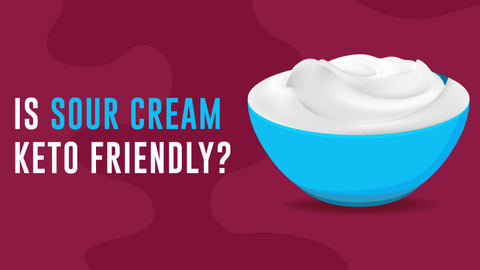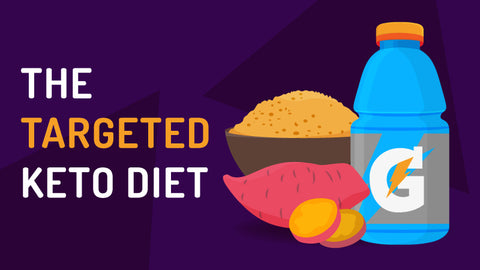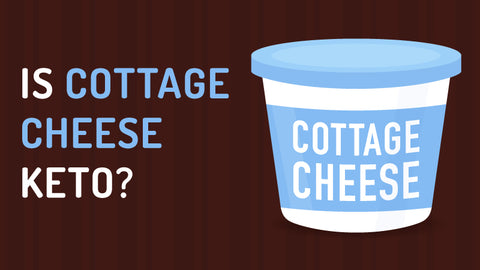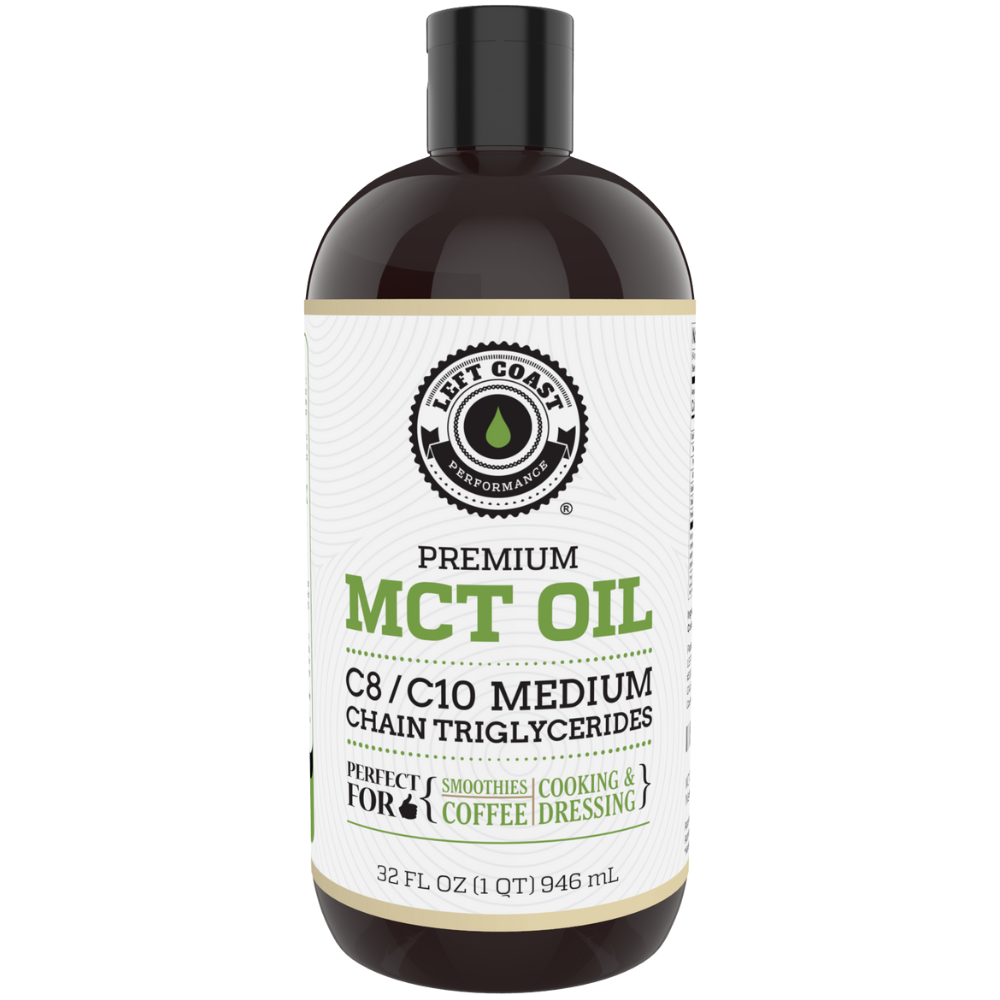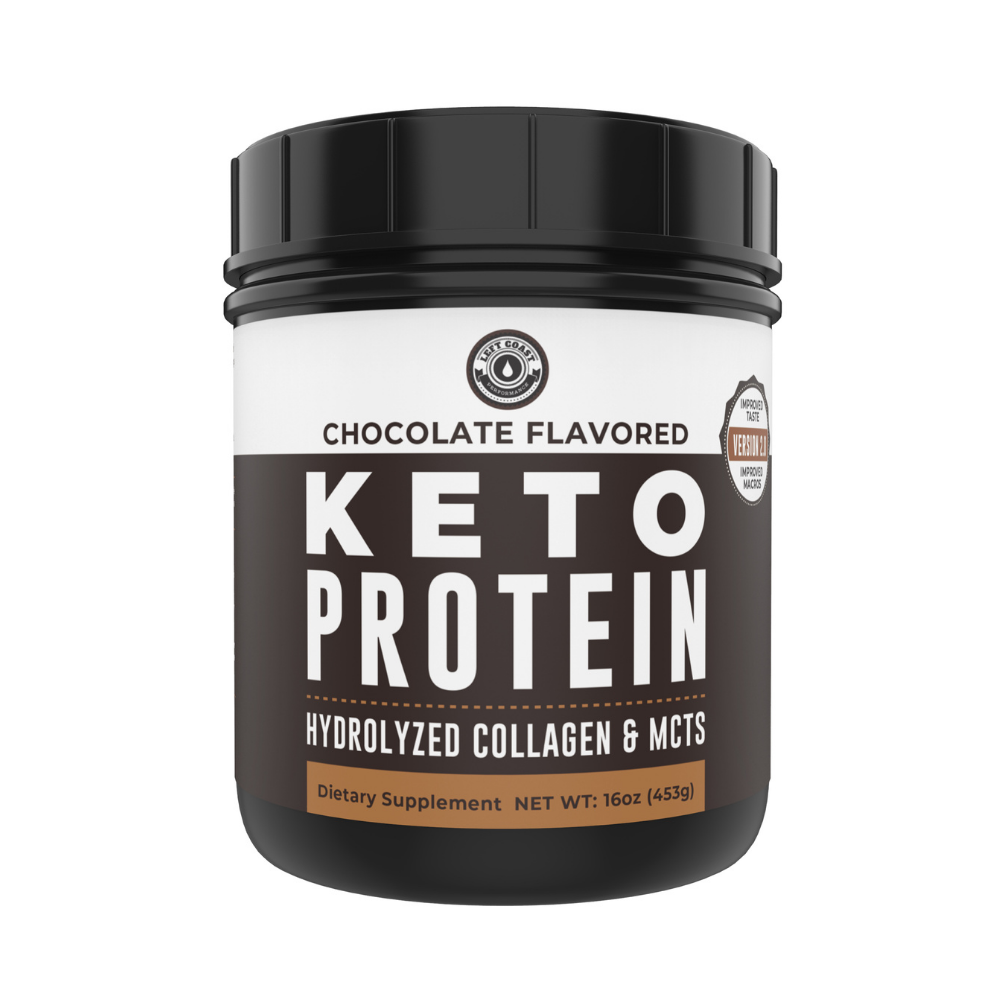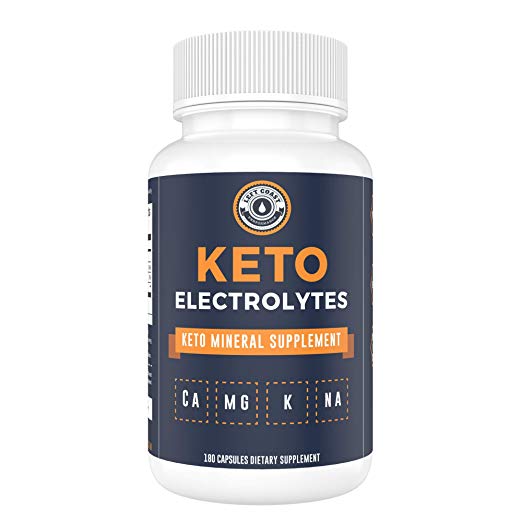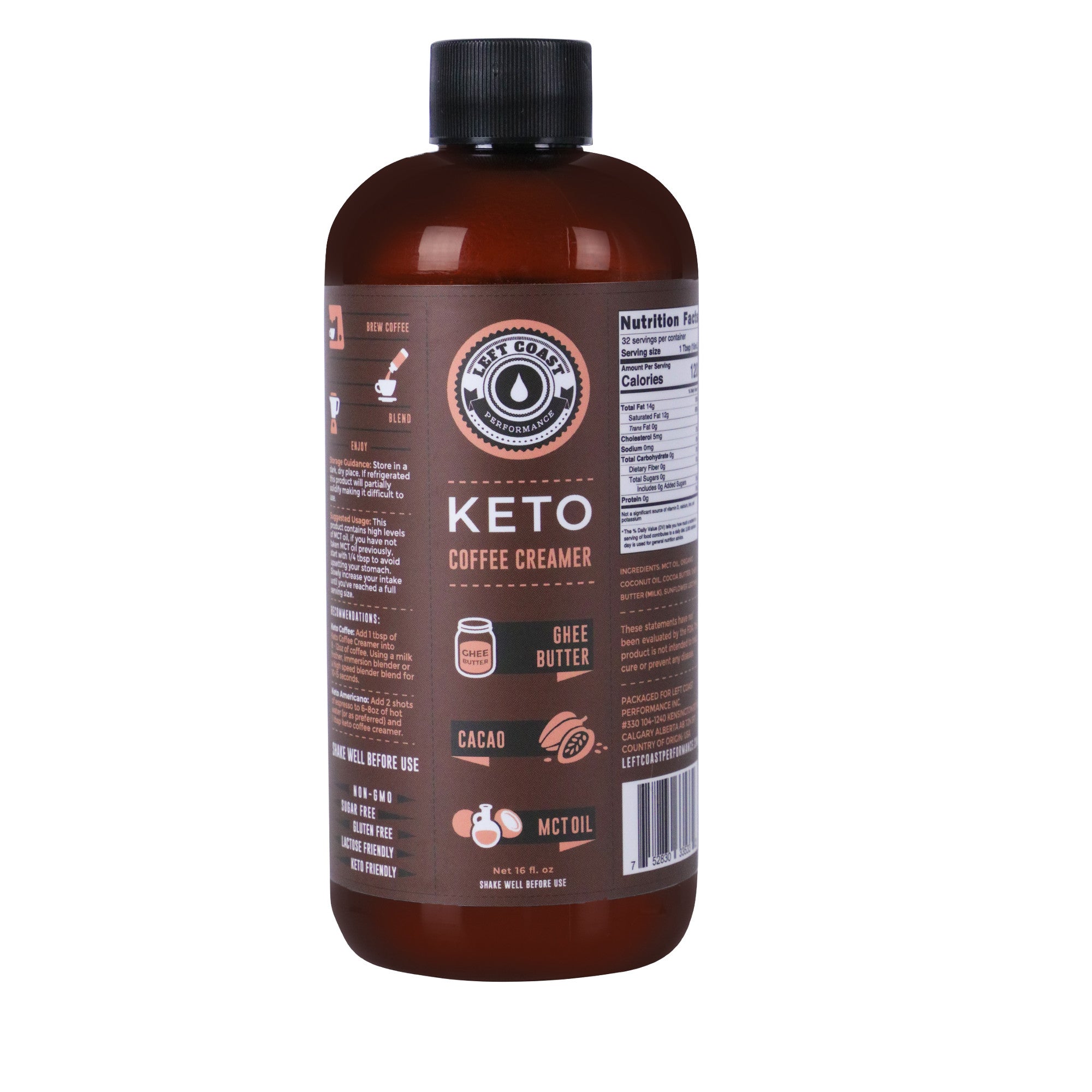The Importance of Potassium and How to Get More of It on a Keto Diet

on October 27, 2019
When you're on a ketogenic diet, it's especially important to monitor your potassium levels.
The keto diet requires a drastic decrease in carbohydrate intake. This form of low-carb dieting forces the body to use its fat as energy, which has many benefits for your health.
On a keto diet, you reduce sugar cravings to stabilize blood sugar, promoting weight loss and the risk of chronic diseases.
The problem with many low-carb diets is that it may lead to missing the mark on our daily requirements of vitamins and minerals. Low potassium levels are especially problematic for your health.
How vital is potassium exactly?
Some of the signs of potassium deficiency include headaches, weakness, fatigue, irritability, muscle cramping, and spasms.
While the keto diet may sound extremely strict, it is a safe diet. The key is in supplementing your minerals and ensuring you're eating a range of fresh, whole foods. In this article, we'll break down the role of potassium in the body, and how you can easily integrate more potassium-rich foods as a keto dieter.
What is Potassium?
Potassium is an essential mineral and electrolyte critical for maintaining the health of our bones, muscles, nervous system, cardiovascular system, and more.
A high-potassium diet may help to reduce water retention, prevent bone degeneration, and keep heart disease at bay.
Potassium has an important relationship with sodium, and a balance between the two is essential. These two electrolytes counterbalance each others’ effects.
If you imagine the sodium-potassium relationship like a battery, the sodium-potassium pump pulls potassium into the cells as it pushes sodium out, and vice-versa.
It’s estimated that our paleolithic ancestors consumed about 16 times more potassium than sodium. Today, most Americans eat far more sodium due to a diet heavy in processed and fast foods, leading to an increased risk of high blood pressure and cardiovascular disease. The keto diet can help shift that ratio back to a potassium-dominant diet.
On a low-carb keto diet, it's essential to balance your electrolytes. You can adjust your sodium levels by watching your salt intake and increase potassium with dark leafy greens, nuts, and meat.
Why is Maintaining Potassium Levels Important?
Potassium is essential for a wide range of functions throughout the body. A diet rich in potassium has been shown to reduce blood pressure and lower the risk of stroke, maintain bone mineral density, and protect against kidney stones.
Let's highlight some of the critical roles potassium plays in the body.
Regulates Blood Pressure
As we've briefly touched on, potassium has a special relationship with sodium. High sodium levels can lead to high blood pressure.
Potassium works with the kidneys to remove excess sodium through urine. Potassium also relaxes blood vessels, which can help to reduce blood pressure. Several studies have found that increasing potassium intake can significantly decrease blood pressure, especially in those with hypertension.
Regulates Heartbeat and Muscle Contractions
The electricity generated from the sodium-potassium pump (hence the term electrolytes) allows muscles to contract and governs the heartbeat as well. Low potassium levels is one of the reasons you may experience muscle cramping.
Regulates Fluid Balance and Reduces Bloating
The sodium-potassium pump prevents water from accumulating in the cells, which could lead to swelling and potential bursting of the cell.
Potassium also helps remove excess sodium with the kidney to reduce stomach bloating.
Essential for the Nervous System
The nervous system communicates via electrical impulses to various systems in the body. The movement between sodium and potassium in the cells activates these nerve impulses, allowing the body to respond to internal and external changes.
Essential for Energy Metabolism
Potassium is involved in the synthesis of protein from amino acids, and in converting glucose to glycogen for the storing of carbohydrates.
Essential for Muscle and Bone Growth
Since potassium is required in protein synthesis, it's involved in muscle building. Muscles are, after all, made from protein. Meanwhile, healthy potassium levels aids in the body's ability to store calcium, which helps maintain bone mass and may prevent osteoporosis.
Prevents Electrolyte Imbalance
Any imbalance between the primary electrolytes (potassium, magnesium, sodium, calcium) will result in side effects like weakness, fatigue, muscle spasms, irregular heartbeat, and blood pressure changes.
How Much Potassium Do We Need?
Most people don't meet their daily requirements of potassium.
A 2012 study found that over 98% of adults in the U.S. did not meet the daily recommended amount of 4700 mg of potassium. However, this recommendation is based on insufficient data, and the NIH (National Institute of Health) has recently updated its adequate intake (AI) recommendations for potassium.
An AI is the level "assumed to ensure nutritional adequacy." The AI for men, 19 years and over, is 3400 mg, and for women is 2600 mg (2900 mg during pregnancy).
Until recently, the FDA didn't require food labels to list potassium contents. In 2020, all food labels will list potassium content, which can help you better understand how much potassium you're consuming.
That said, you shouldn't always have to depend on labels — especially when your keto diet has a balance of leafy greens, meats, and nuts.
Signs and Symptoms of The Keto Flu and Potassium’s Role in Prevention
The keto flu is a group of symptoms experienced by some people in the early stages of adopting the keto diet.
Many keto flu symptoms are triggered by dehydration and electrolyte imbalances.
Staying hydrated and replenishing your electrolytes with potassium-rich foods and supplements is key to alleviating the keto flu and symptoms, including headaches, cramps, and bloating.
How to Get Enough Potassium on Keto
Replenishing your electrolytes, especially potassium, is as important as drinking enough water on the keto diet. Most scientists agree that the best way to increase potassium intake is to eat more fresh fruits and vegetables.
On a ketogenic diet, you’ll want to avoid starchy, high-potassium foods such as bananas, dried fruits, and beans, which are higher in carbs and natural sugars.
There’s still a long list of keto-friendly options that are just as rich in potassium, including leafy greens, fish, and avocado.
Do keep in mind that potassium is water-soluble, so you may lose some of it when cooking.
Keto Foods High in Potassium
These keto foods will help keep your potassium levels in check. We’ve included the amount of potassium and net carbs for each in a serving of 3.5 ounces (100 grams) unless otherwise stated.
|
Veggies |
Potassium (mg) |
Net Carbs (g) |
|
Cooked beet greens |
909 mg |
2.6 g |
|
Raw spinach |
558 mg |
1.4 g |
|
Cooked spinach |
466 mg |
1.3 g |
|
Swiss chard |
549 mg |
2.0 g |
|
Portobello mushrooms |
521 mg |
2.7 g |
|
White mushrooms |
488 mg |
3.5 g |
|
Avocado |
485 mg |
1.8 g |
|
Raw zucchini |
459 mg |
2.0 g |
|
Cooked zucchini |
253 mg |
2.5 g |
|
Raw kale |
447 mg |
5.2 g |
|
Cooked kale |
228 mg |
3.6 g |
|
Raw broccoli |
316 mg |
4.0 g |
|
Cooked broccoli |
293 mg |
3.9 g |
|
Peas |
240 mg |
4.2 g |
|
Cucumber |
147 mg |
3.1 g |
|
Meat |
Potassium (mg) |
Net Carbs (g) |
|
Cooked wild Atlantic salmon |
628 mg |
0 g |
|
Cooked yellowfin tuna |
569 mg |
0 g |
|
Canned tuna |
237 mg |
0 g |
|
Cooked cod |
517 mg |
0 g |
|
Cooked halibut w/ skin |
501 mg |
0 g |
|
Cooked wild trout |
448 mg |
0 g |
|
Pork chops, bone-in |
374 mg |
0 |
|
Top sirloin steak |
355 mg |
0 |
|
Nuts & Seeds |
Potassium (mg) |
Net Carbs (g) |
|
Pumpkin seeds (1 oz) |
226 mg |
3.9 g |
|
Almonds (1 oz) |
197 mg |
2.7 g |
|
Hazelnuts (1 oz) |
190 mg |
2.0 g |
|
Flax seeds (1 tbsp) |
56.9 mg |
0.1 g |
Potassium Supplements
Potassium supplements can come in handy when you’re on the go, especially when you’re following a keto diet and exercising regularly.
Here are common types of potassium supplements on the market and how it can support your keto diet.
Note: Potassium supplements are not recommended for anyone taking diuretics or medications for high blood pressure. It’s best to consult your physician before starting on a regular supplement regime.
Capsulated Potassium Supplements
There are several types of potassium capsules on the market, depending on what elements are bound to the potassium, including potassium gluconate, citrate, and chloride.
Potassium chloride is the most common type used to treat deficiency.
However, there’s not necessarily a recommended type, and there are few studies that have looked into how well each form of potassium is absorbed. A 2016 trial found that humans absorb about 94% of potassium gluconate in supplements. Scientists believe most other forms likely have similar absorption rates.
In general, potassium capsules only contain up to 100 mg potassium, which, when you look at the amount in the foods above, doesn’t amount to much. You could get nearly twice that in a 1 oz. serving of almonds.
Potassium Drink Powder
Potassium is also available in powdered form, which allows you to get more of the mineral versus a capsule. Many potassium drink powders have at least 400 mg of potassium and also come mixed with calcium, magnesium, and/or vitamin C.
So far no studies have been done to show whether taking a potassium powder absorbs better or more quickly than other supplements.
Electrolyte Supplements
Rather than taking pure potassium supplements, a full electrolyte supplement may be a better choice to avoid any electrolyte imbalance on a keto diet. These capsules contain a balanced blend of potassium, magnesium, calcium, and sodium that are easily absorbed to replenish your body’s electrolytes.
Exogenous Ketones
Beta-Hydroxybutyrate (BHB) salt ketone supplements offer multiple benefits. Not only do they give your body a quick dose of ketones to help you rapidly achieve ketosis, but they also contain electrolytes, including potassium, sodium, magnesium, and calcium.
Exogenous ketones are highly recommended supplements, especially if you’re just starting out on a keto diet. BHB salts will help ease you into ketosis while protecting you from dehydration and electrolyte imbalance.
Low Potassium & High Potassium Risks: Hypokalemia & Hyperkalemia
The body needs a steady supply of potassium for healthy function. If you’re not adding the potassium-rich foods or supplements listed above, you could risk hypokalemia.
Still, while there are dangers in consuming too little potassium, there are dangers of consuming too much as well.
Low Potassium: Hypokalemia
The kidneys are the main regulators of our body potassium levels. Excess potassium is mostly excreted through the urine, with a small amount lost in sweat. A deficiency and electrolyte imbalance can happen with any major loss of fluids, like what happens when your body kicks into ketosis.
Deficiency, or hypokalemia, occurs when a blood level of potassium is less than 3.5 mmol per liter. Weakness and fatigue are the most common symptoms of potassium deficiency. You may also experience:
- muscle weakness
- slower reflexes
- cramps
- heart palpitations
- constipation
Over time, chronic low potassium levels have been linked to hypertension, cardiac arrhythmia, cardiovascular disease, fatigue, and depression.
However, in healthy individuals, a deficiency is rare, and it’s easy to avoid these risks by ensuring you’re getting enough potassium in your keto diet.
High Potassium: Hyperkalemia
On the flip side, it’s difficult to get too much potassium, but it can happen if the body is unable to excrete excess amounts through the urine.
High potassium, or hyperkalemia, occurs when a blood level of potassium is higher than 6.0 mmol per liter.
This mostly points to people with weak kidney function or chronic kidney disease. Anyone on blood pressure medications should limit their potassium intake.
Symptoms of hyperkalemia are similar to hypokalemia, including muscle fatigue and weakness, but it may also lead to an abnormal heartbeat (arrhythmia).
In healthy individuals, high potassium levels will likely only occur when taking too many potassium supplements. This is why it’s best to get your potassium via food, a balanced electrolyte supplement, or BHB salts.
In Conclusion: Pay Attention to Your Potassium Intake
Potassium is critical to our health, but far too many of us are not getting enough of it.
Potassium is an electrolyte with many functions including, regulating blood pressure, fluid balance, muscle contractions, energy metabolism, proper nervous system functioning, and muscle and bone growth.
If you're new to the keto diet and are experiencing keto flu symptoms, you should examine your potassium levels. Muscle weakness, muscle cramps, fatigue, and general irritability are all symptoms of low potassium, which is common on low carb dieting.
Luckily, maintaining healthy potassium levels doesn't need to be complicated on a keto diet.
All that's needed is a diet rich in whole foods. Potassium-rich foods such as leafy greens, fish, beef, pork, avocado, nuts, and seeds will get you on the right track. Electrolyte supplementation and BHB salts with potassium are excellent ways to give your potassium levels an extra boost with an active lifestyle.
If you're looking for more ways to support your ketogenic diet and are interested in learning more about the benefits of the keto diet, check out the articles on our blog.


